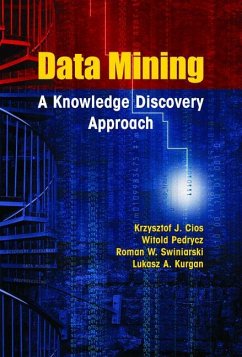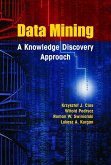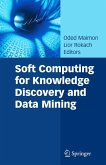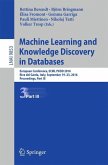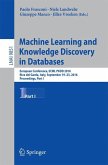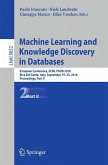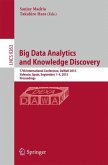This comprehensive, advanced-level textbook on data mining details the unique steps of the knowledge discovery process-an industry standard that prescribes the sequence in which projects should be performed, from data understanding and preprocessing to deployment of the results. This knowledge discovery approach is what distinguishes Data Mining from other texts in this area. The book concentrates on clustering (a required step for any unsupervised data), data preparation, and data mining tools, focusing on those algorithms which have proven successful in data mining projects. In addition, the book analyzes the most popular data mining methods and presents the most freely available commercial data mining tools.
The authors' experience and expertise ensure that this text will be an authoritative instructional tool. Researchers, practitioners and students are certain to consider Data Mining an indispensable resource in successfully accomplishing the goals of their data mining projects.
"If you torture the data long enough, Nature will confess," said 1991 Nobel-winning economist Ronald Coase. The statement is still true. However, achieving this lofty goal is not easy. First, "long enough" may, in practice, be "too long" in many applications and thus unacceptable. Second, to get "confession" from large data sets one needs to use state-of-the-art "torturing" tools. Third, Nature is very stubborn - not yielding easily or unwilling to reveal its secrets at all. Fortunately, while being aware of the above facts, the reader (a data miner) will find several efficient data mining tools described in this excellent book. The book discusses various issues connecting the whole spectrum of approaches, methods, techniques and algorithms falling under the umbrella of data mining. It starts with data understanding and preprocessing, then goes through a set of methods for supervised and unsupervised learning, and concludes with model assessment, data security and privacy issues.It is this specific approach of using the knowledge discovery process that makes this book a rare one indeed, and thus an indispensable addition to many other books on data mining. To be more precise, this is a book on knowledge discovery from data. As for the data sets, the easy-to-make statement is that there is no part of modern human activity left untouched by both the need and the desire to collect data. The consequence of such a state of affairs is obvious.
Hinweis: Dieser Artikel kann nur an eine deutsche Lieferadresse ausgeliefert werden.
The authors' experience and expertise ensure that this text will be an authoritative instructional tool. Researchers, practitioners and students are certain to consider Data Mining an indispensable resource in successfully accomplishing the goals of their data mining projects.
"If you torture the data long enough, Nature will confess," said 1991 Nobel-winning economist Ronald Coase. The statement is still true. However, achieving this lofty goal is not easy. First, "long enough" may, in practice, be "too long" in many applications and thus unacceptable. Second, to get "confession" from large data sets one needs to use state-of-the-art "torturing" tools. Third, Nature is very stubborn - not yielding easily or unwilling to reveal its secrets at all. Fortunately, while being aware of the above facts, the reader (a data miner) will find several efficient data mining tools described in this excellent book. The book discusses various issues connecting the whole spectrum of approaches, methods, techniques and algorithms falling under the umbrella of data mining. It starts with data understanding and preprocessing, then goes through a set of methods for supervised and unsupervised learning, and concludes with model assessment, data security and privacy issues.It is this specific approach of using the knowledge discovery process that makes this book a rare one indeed, and thus an indispensable addition to many other books on data mining. To be more precise, this is a book on knowledge discovery from data. As for the data sets, the easy-to-make statement is that there is no part of modern human activity left untouched by both the need and the desire to collect data. The consequence of such a state of affairs is obvious.
Hinweis: Dieser Artikel kann nur an eine deutsche Lieferadresse ausgeliefert werden.
From the reviews: "This is a comprehensive book about knowledge discovery methods. ... the book is highly recommended to final year undergraduate students, postgraduate students and lecturers. ... it has a good balance of various topics making it a good reference book for practitioners, such as data modellers, insight analysts, fraud analysts, etc., as well as researchers. ... this book is very well organized and presented. ... I would certainly recommend it to those with intermediate or advanced understanding of data-mining topics." (Boran Gazi, The Computer Journal, Vol. 53 (4), 2010)
